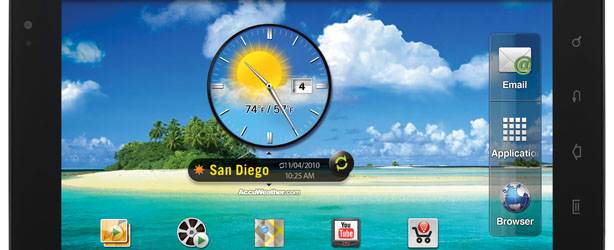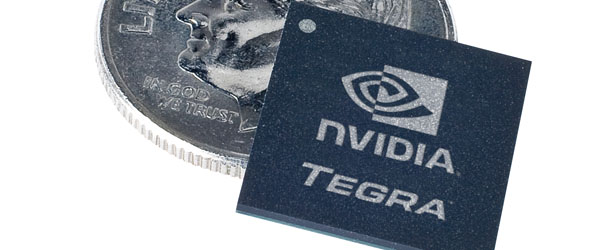
ARM set to take 13% of PC CPU market?
Predicting the future of computers can be a perilous game, whether you're a market researcher or an idle speculator. The economy can be volatile, consumer habits can be fickle, companies can go bust and you can easily end up looking like Michael Fish before the 1987 hurricane. However, that hasn't stopped marketing firm IDC from making a brave prophecy in its microprocessor forecast last week. 'By 2015,' says the report, 'IDC expects that over 13 per cent of PC processors will be based on the ARM architecture.'While this figure isn't likely to send Intel's shareholders into a frenzied panic, it's still a massive share of the market when you consider that the ARM architecture is effectively starting from nothing in the PC segment. What's IDC's definition of a 'PC processor in this case, though? Are we talking about traditional PCs, or is this accounting for devices such as tablets and smartphones too?
 ARM is already popular in Android-based tablets such as the Samsung Galaxy Tab range, but IDC predicts the architecture will soon make its way into the PC market too
ARM is already popular in Android-based tablets such as the Samsung Galaxy Tab range, but IDC predicts the architecture will soon make its way into the PC market too'We're sticking with a more traditional definition of a PCs,' IDC's research director of computing semiconductors, Shane Rau, told us. 'Since the Intel, AMD, and VIA processors we're tracking were designed for PCs, and not for smartphones or tablets, they are not tablet processors or smartphone processors.'
However, Rau also pointed out that ARM's 13 per cent slice of the processor pie isn't likely to be mostly made up of high-end ARM-based desktop rigs. According to Rau, a significant proportion of them will be 'low-end mobile systems that, despite being designed as PCs and running a PC OS, will reflect ARM's origins in low-power, low-thermals devices. These will be high volume, low priced systems, many purchased in emerging markets that are cost-sensitive and open to new device-types based on different technologies.'
Of course, a lot can happen between now and 2015, so there's a large element of speculation here. However, the turning point for ARM could be when ARM-based chips start being designed specifically for PCs, as opposed to handheld devices.
 Nvidia's Tegra CPUs are based on ARM, and it has plans for an ARM-based PC CPU codenamed Project Denver
Nvidia's Tegra CPUs are based on ARM, and it has plans for an ARM-based PC CPU codenamed Project Denver'Today, ARM-based netbooks are in small volumes and the processors inside aren't designed for PCs,' says Rau, 'they're usually processors designed for other devices and inserted in the netbooks.' This could all change over the next few years, though, as PC hardware and software vendors start to design their products specifically for the ARM architecture.
'Going forward, Microsoft will support Windows on ARM and companies like Nvidia will develop ARM-based processors specifically for PCs,' says Rau. 'Assuming there are strong investments from ARM and many more companies in the software, hardware, and design ecosystem, we believe that ARM will get some traction, starting with its customers' PC processor products in netbooks and then scaling upwards into traditional mobile PCs, then desktop PCs, then PC servers.'

MSI MPG Velox 100R Chassis Review
October 14 2021 | 15:04








Want to comment? Please log in.